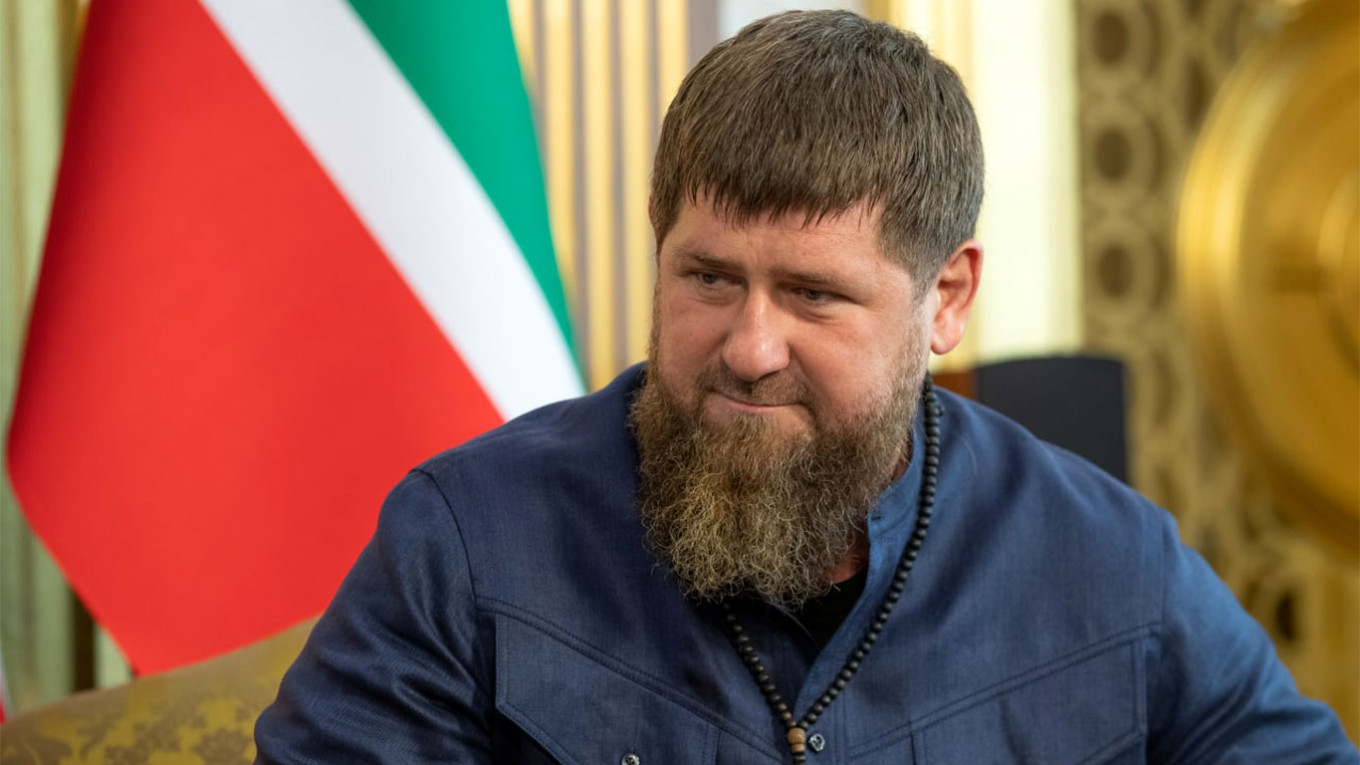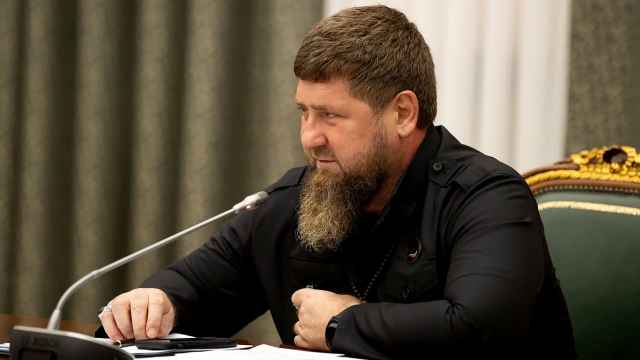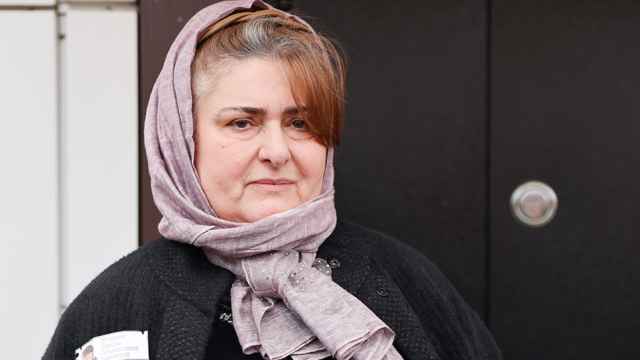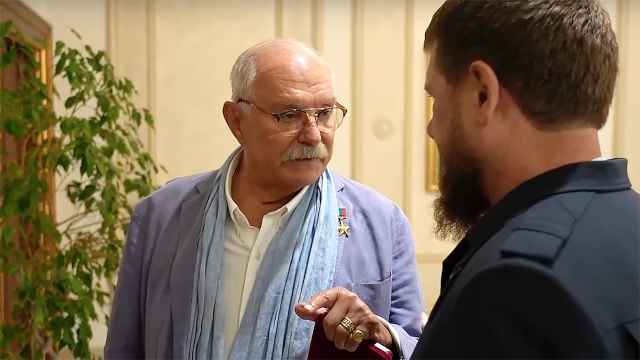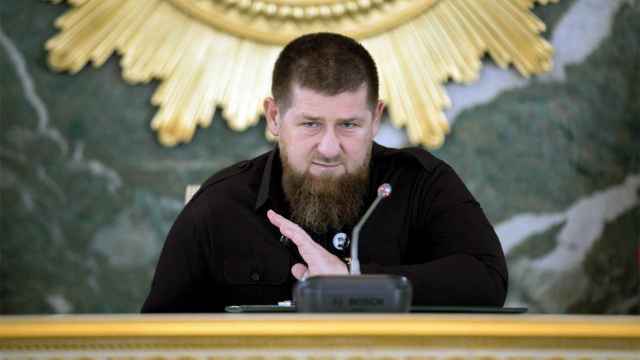Speculation over Chechen leader Ramzan Kadyrov’s health condition has mounted in recent days following claims in Ukrainian media that he is in a coma or even dead.
Kadyrov, 46, has ruled the North Caucasus republic of Chechnya for 15 years, earning a reputation for brutality both within his region and towards civilians in Ukraine. In October 2022, the loyal ally of Russian President Vladimir Putin was made a Colonel General, the third-highest rank in the Russian military.
His death could have significant consequences for the Kremlin. So how much truth is there to the rumors?
Is Kadyrov unwell?
Commentators often draw on Kadyrov’s appearance to speculate about his health. His face can appear puffy with squinting eyes, and his speech is frequently slurred and barely coherent. His weight appears to fluctuate between videos.
While these aren’t necessarily indicative of health issues, sources in his inner circle told the independent newspaper Novaya Gazeta he suffers from an unspecified “serious disease” which is fatal in 30% of cases. Various other reports have claimed he suffers from kidney problems which require him to regularly fly to Moscow for dialysis treatment.
Kadyrov is clearly aware of the speculation and has repeatedly denied and mocked claims that he is unwell. In March, he laughed off reports that he was suffering from kidney problems, saying he was “healthy and full of energy,” and “sorry to disappoint” anyone who hoped he was terminally ill. He also said that a device on his finger, speculated to be a health monitor, was a prayer counter.
The Kremlin has said it has no information about Kadyrov’s health. “In any case, the presidential administration can hardly give out health certificates. Therefore, we have nothing to say here," spokesman Dmitry Peskov said Monday.
How did these rumors spread?
The Ukrainian website Obozrevatel said it received an exclusive comment from Andriy Yusov, Ukraine’s military intelligence (GUR) spokesperson, saying Kadyrov’s illnesses had worsened and left him in a “serious condition.” The GUR has not publicly confirmed Obozrevatel’s report.
Obozrevatel then claimed that its sources in the Chechen diaspora report that Kadyrov had been in a coma for several days following a failed kidney transplant. BBC Russian says this phrase usually refers to Chechens in Europe, the majority of whom would not have access to such information.
The rumors escalated further on Sunday, with Chechen opposition activist Abubakar Yangulbaev writing on his Telegram channel that Kadyrov had died. He offered no further explanation.
Various claims about Kadyrov’s health have been amplified on social media, spread by Telegram channels such as Nexta and figures like Anton Gerashchenko, a former Ukrainian Deputy Interior Minister, who has hundreds of thousands of followers on X (formerly Twitter).
Are the reports credible?
Not only has the Ukrainian intelligence service not publicly corroborated its statement to Obozrevatel, but the news outlet has since amended its original report. With no indication of what was originally published, it is hard to tell what they claimed.
There is also disagreement within Chechen opposition groups on Telegram about Kadyrov’s health. Claims about his whereabouts, or data from planes linked to him, often conflict with each other. While the NIYSO channel insists that he is in a coma, 1ADAT maintains that is not the case.
Former Ekho Moskvy editor-in-chief Alexei Venedikov, who has also written that Kadyrov suffers from kidney failure, says there has been no confirmation that Kadyrov has returned from his annual leave which started July 3. But conflicting claims from 1ADAT say that Kadyrov has since approved Chechen legislation, which he could not have done if he was in a coma.
Rumors surrounding Kadyrov’s inner circle are also not uncommon. Before reports about the Chechen leader's health emerged last week, the Telegram channel VChK-OGPU claimed he had his doctor Elkhan Suleymanov buried alive as punishment for failing to cure his ill health and allegedly poisoned him. These claims were picked up and circulated by international media.
However, Suleymanov later gave an interview to Azerbaijani media in which he addressed his disappearance from the public eye and said everything was fine.
What has Kadyrov said?
Two days after Obozrevatel’s report, two undated videos were shared on Kadyrov’s Telegram account. The first showed him walking in the rain along a path which has been geolocated to the grounds of his palace in central Grozny.
The Chechen opposition Telegram channel NIYSO argued that the video was pre-recorded and released to give Kadyrov the appearance of good health. However, the weather in Grozny over the weekend matched the rain and grey skies in the video.
Though Kadyrov did not discuss his health on camera, the Telegram post recommended that “everyone who cannot distinguish the truth from lies on the internet go for a walk, get some fresh air and put their thoughts in order,” adding “The rain can be wonderfully invigorating.”
Kadyrov addressed the rumors again on Sept. 20, sharing a video from the Central Clinical Hospital in Moscow, where he was visiting his uncle Magomen Kadyrov. An attending doctor confirmed on camera the date of the recording.
VChK-OGPU previously claimed that the presence of security vehicles with Chechen license plates outside the hospital was evidence that Ramzan Kadyrov was a patient.
"Praise be to the Almighty, I am alive and well," the caption to Kadyrov's video said. "Now my audience knows which media and persons openly lie to their readers."
What if he does die?
If Kadyrov dies, it is unlikely the Kremlin would be able to cover it up, Caucasus analyst Harold Chambers told The Moscow Times. Muslim traditions require a body to be buried as quickly as possible, within three days at the latest.
“Kadyrov’s funeral will be a big affair,” Chambers said. “They can try and put a media blackout on it. But they tried that with his son’s wedding in March, and a video still leaked.”
Chambers believes Kadyrov’s eldest son, Akhmat, would take over after his death. As he is only 17, another official would be needed to govern in his place until he turns the required minimum age of 21. There is also a risk of leadership challenges from other members of his family, including the mayor of Grozny.
The Washington-based think tank Institute for the Study of War wrote that the destabilization of Chechnya would be a “major blow” to the Kremlin’s authority, since Kadyrov’s role in the pacification of the republic after a decade of separatist wars helped cement Putin’s popularity at the start of his presidency.
A power struggle in Chechnya would be a more extreme version of competition within the Kremlin, according to journalist Mikhail Fishman. “Chechnya will reflect the future that most likely awaits Russia,” he said.
This article was updated at 19:20 GMT+3 on Sept. 20 to include information about Kadyrov's latest Telegram posts.
A Message from The Moscow Times:
Dear readers,
We are facing unprecedented challenges. Russia's Prosecutor General's Office has designated The Moscow Times as an "undesirable" organization, criminalizing our work and putting our staff at risk of prosecution. This follows our earlier unjust labeling as a "foreign agent."
These actions are direct attempts to silence independent journalism in Russia. The authorities claim our work "discredits the decisions of the Russian leadership." We see things differently: we strive to provide accurate, unbiased reporting on Russia.
We, the journalists of The Moscow Times, refuse to be silenced. But to continue our work, we need your help.
Your support, no matter how small, makes a world of difference. If you can, please support us monthly starting from just $2. It's quick to set up, and every contribution makes a significant impact.
By supporting The Moscow Times, you're defending open, independent journalism in the face of repression. Thank you for standing with us.
Remind me later.



